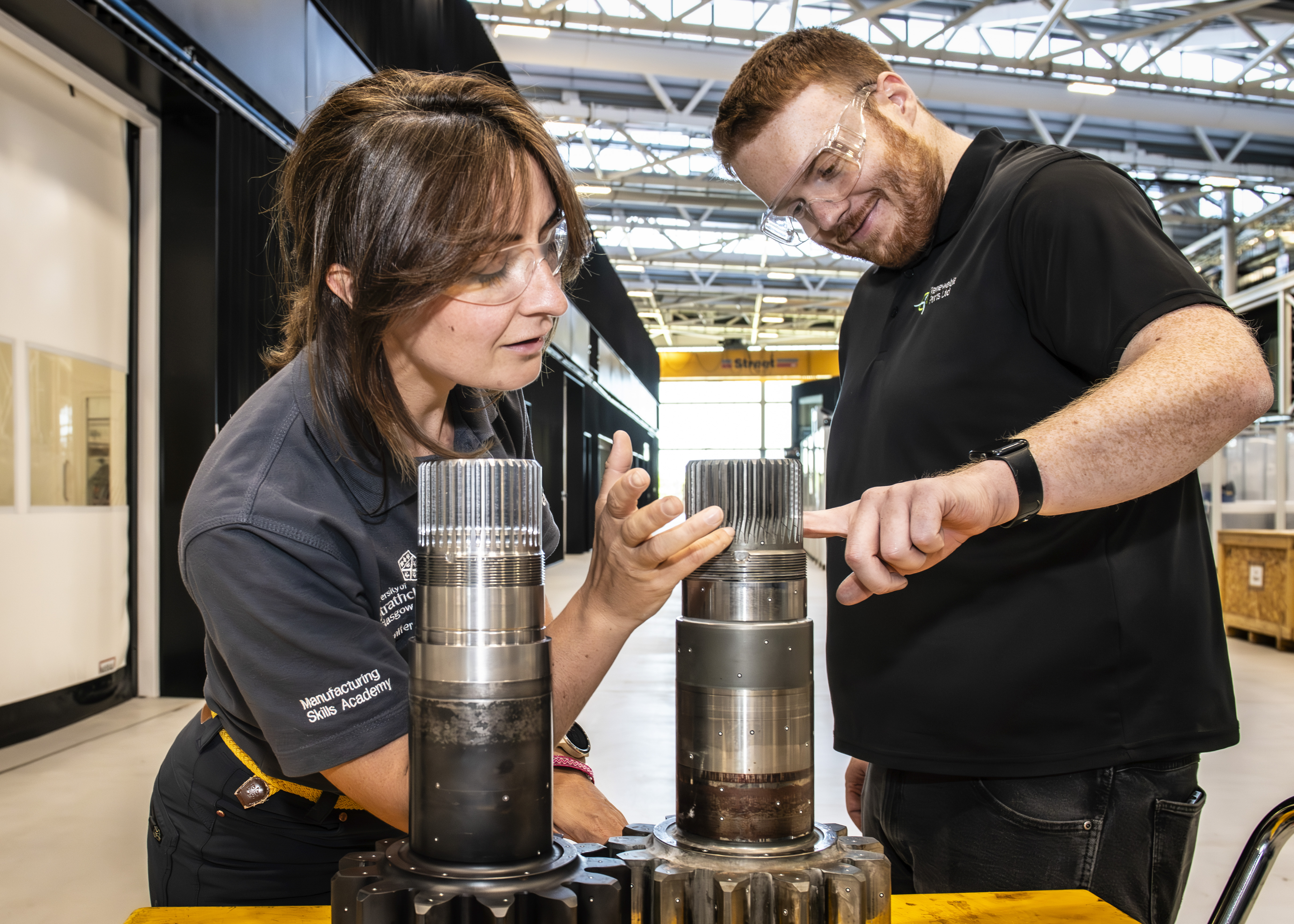Advanced Additive Remanufacturing Could Transform Wind Turbine Repairs
Background
Renewable Parts Limited (RPL) is a Scotland based specialist in refurbished wind turbine components. In partnership with SSE Renewables and the National Manufacturing Institute Scotland (NMIS), the company is working to reduce waste and carbon emissions by extending the life of high-value parts.
One area of focus is the yaw gearbox, which rotates the turbine nacelle to face into the wind. Within this system, pinion shafts are small but critical components that experience high levels of wear. Their failure often necessitates full component replacement, leading to up to 42kg of steel being scrapped and turbines going offline.
Challenge
Despite having a concept for remanufacturing key components including pinion shafts, RPL lacked the specialist facilities and technical expertise to validate additive repair techniques.
At the same time, SSE Renewables was keen to explore options for sustainable repairs across its onshore fleet, reducing carbon emissions while strengthening resilience within the UK wind supply chain.
What did NMIS do?
As part of its ReMake programme, NMIS worked with RPL and SSE Renewables to trial advanced additive repair techniques for worn yaw gearbox components.
Trials used a range of methods, including friction welding and arc based additive manufacturing, culminating in a full-scale demonstrator. The component was machined to restore critical features and underwent rigorous mechanical, metallurgical and non-destructive testing against an original part.
NMIS engineers are now verifying whether remanufactured yaw gears meet international technical and operational standards, paving the way for field trials on SSE Renewable’s operational wind turbines.
By combining NMIS expertise in additive manufacturing and inspection and cost modelling, the team demonstrated the potential for circular repair processes in high-integrity renewable energy applications.
Impact
The trials showed that remanufactured yaw gearbox parts could reduce steel waste by up to 42kg per unit and match original performance standards. Early modelling suggests up to 84kg of CO₂ equivalent could be saved per remanufactured component.
If adopted widely, this approach could prevent thousands of tonnes of steel waste annually and significantly lower emissions across the wind sector, while strengthening local supply chains and supporting UK manufacturing capability.
The collaboration helped de-risk the technology, giving Renewable Parts and SSE Renewables the confidence to explore broader adoption and future opportunities.

Ryan McCuaig, Product Development Engineer at Renewable Parts said:
The trials showed that remanufactured yaw gearbox parts could reduce steel waste by up to 42kg per unit and match original performance standards. Early modelling suggests up to 84kg of CO₂ equivalent could be saved per remanufactured component.
If adopted widely, this approach could prevent thousands of tonnes of steel waste annually and significantly lower emissions across the wind sector, while strengthening local supply chains and supporting UK manufacturing capability.
The collaboration helped de-risk the technology, giving Renewable Parts and SSE Renewables the confidence to explore broader adoption and future opportunities.
